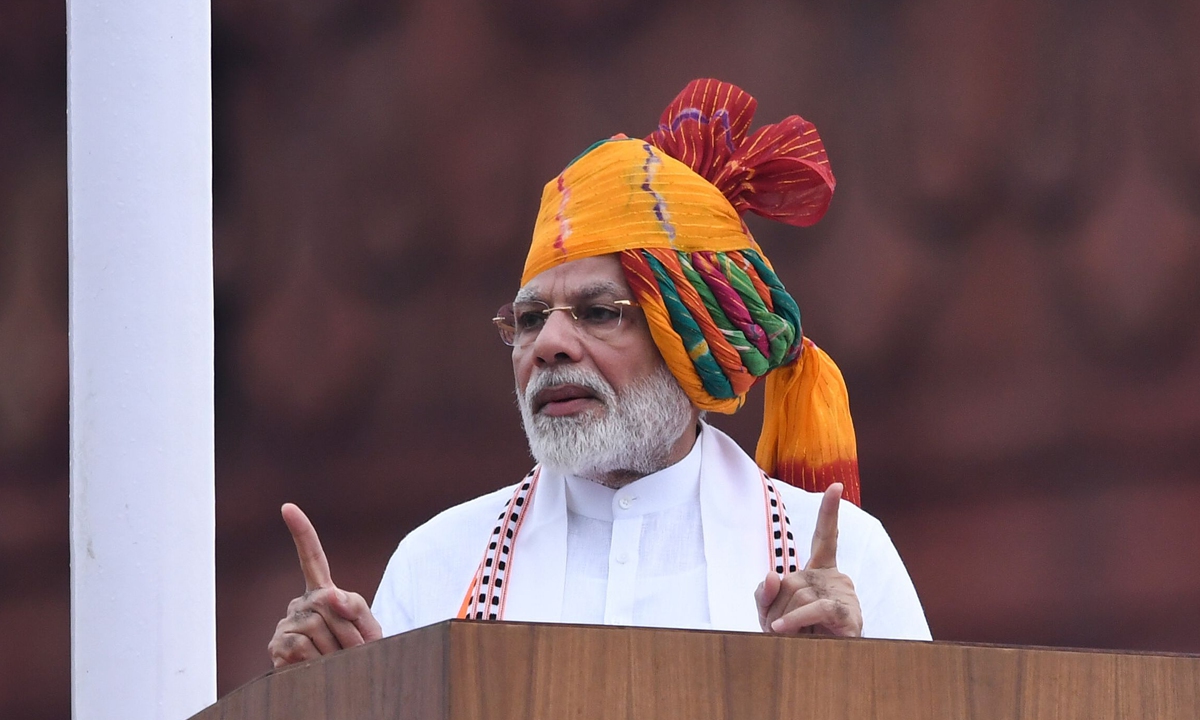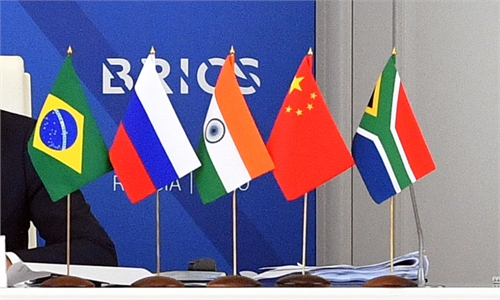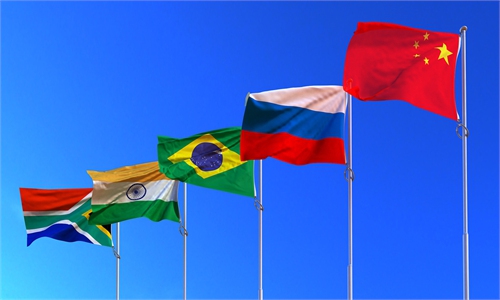
Indian Prime Minister Narendra Modi File photo:VCG
India on Tuesday confirmed Prime Minister Narendra Modi's attendance at the China-hosted BRICS summit, which is expected to highlight cooperation, growth, inclusiveness and the shared interests of developing countries at a time when the world is in turbulence and uncertainty, observers said.As a founding member of BRICS which shares common interests with other developing countries and has benefitted from the mechanism, India will see through Western efforts to draw discord between BRICS members and choose what is in favor of its real interests, experts said.
Modi will attend the 14th BRICS Summit on Thursday and Friday, including a High-Level Dialogue on Global Development with guest countries on Friday, according to India's Ministry of External Affairs.
The summit is expected to cover intra-BRICS cooperation in areas such as counter-terrorism, trade, health, traditional medicine, environment, science and technology innovation, agriculture, technical and vocational education and training, the ministry said in an official statement.
India's attention is attached to the concrete agenda and cooperation potential at BRICS, experts said, saying Western ideas of picturing India as a loudspeaker for the West is self-flattering.
Bloomberg reported Wednesday that India will resist the anti-US messaging from China and Russia at the BRICS summit, out of a blatant camp confrontation mindset and ignore the essence of BRICS is new economies and developing countries uniting to speak louder for their common interests.
Speaking at the opening ceremony of BRICS Business Forum held virtually, Modi said the grouping of Brazil, Russia, India, China and South Africa was set up with the belief that this group of emerging economies can evolve as an engine of global growth. When the whole world is focusing on post-COVID recovery, the role of BRICS countries will continue to remain very important again.
Qian Feng, director of the research department at the National Strategy Institute at Tsinghua University, told the Global Times on Wednesday that India has been contributing to and benefitting from BRICS over the past years. Despite Western efforts to draw India closer or sow discord between BRICS members, New Delhi will maintain its strategic autonomy and act based on its national interests.
India has raised its international influence as well as yielded real benefits through the BRICS.
The New Development Bank (NDB), or BRICS bank, has established an Indian Regional Office and on Monday, DJ Pandian was appointed as director general of the new office. Pandian previously served as Vice President and Chief Investment Officer at Asia Infrastructure Investment Bank.
Of the $30 billion in 80 projects the NDB has disbursed to its member countries, 21 are in India in sectors from transport, water and sanitation to clean energy, as well as digital and social infrastructure, involving $7.1 billion, media reported.
Two orbiting Indian satellites Resourcesat-2 and 2A will be part of the "virtual constellation of remote sensing satellites," a data sharing mechanism among BRICS countries, in accordance with agreements signed in August 2021 under India's presidency of BRICS.
The five BRICS nations represent 40 percent of the world's population, 24 percent of global GDP and 16 percent of global trade. "There is no reason India should want to stay out," reads an opinion piece on Indian media outlet the Print.
Qian said there are major changes in regional geopolitics and India has joined the US-led Quad and IPEF, acting as a key pillar in the US' Indo-Pacific Strategy, but India won't forget it always shares large common interests with developing countries. "Development, not camp confrontation, is the top priority of new economies."
Liu Zongyi, secretary-general of the Research Center for China-South Asia Cooperation at Shanghai Institutes for International Studies, said India has a good status in the eyes of the US and the West mainly because the US and the West think they can use India as a counterweight to China. But the US and the West will never allow India to become as powerful as China. It is clear that the US does not want to see the rise of non-Anglo-Saxon countries and civilizations.
Describing the relationship between China and India as a "competitive symbiosis," Liu noted the two countries should offer development opportunities to each other, continue to build mutual trust, avoid misunderstanding and miscalculation.
There are disputes and difficulties between China and India, but the two major developing countries and ancient civilizations have the wisdom to manage the issue properly while expanding common ground at multilateral occasions, Qian said.


